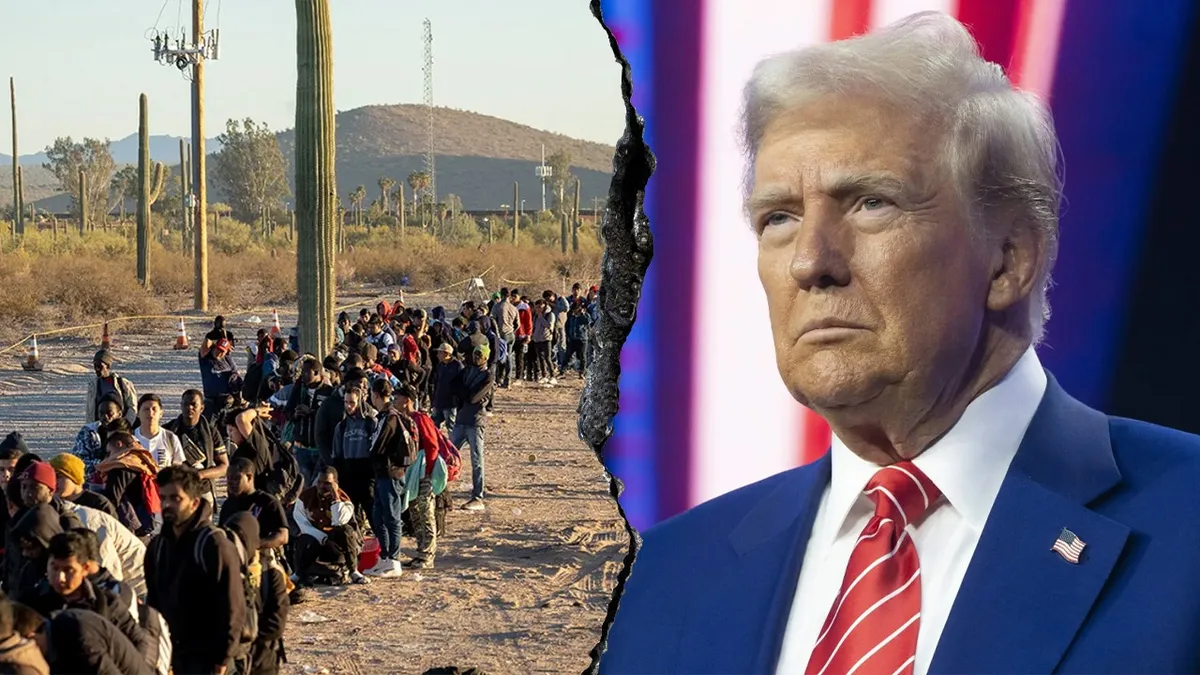
A recent ruling by a federal appellate court has further complicated the Trump administration's plans to deport Venezuelan nationals. The court declined to issue a stay on a lower court's orders, which challenge the administration's authority to invoke a 1798 wartime law for deportation purposes. In a significant 2-1 decision handed down on Wednesday, a three-judge panel sided with the plaintiffs in the case, effectively blocking the administration's aggressive deportation agenda.
The ruling came from judges Karen Henderson, Patricia Millett, and Justin Walker of the D.C. Circuit Court of Appeals, who presided over expedited oral arguments the preceding Monday. Judge Millett, an appointee of former President Obama, was particularly vocal during the proceedings, engaging in a rigorous exchange with Justice Department lawyer Drew Ensign. Their debate centered on the Trump administration's application of the law in question and whether it violated constitutional due process protections by not allowing individuals targeted for deportation sufficient time to seek habeas protections.
In a concurring opinion, Judge Henderson, a Bush appointee, emphasized the need for caution at this stage of the proceedings. She stated, “At this early stage, the government has yet to show a likelihood of success on the merits. The equities favor the plaintiffs.” This statement reflects the court's focus on the importance of protecting the judicial process while the case is under consideration. The judges unanimously agreed that the request to stay the district court’s temporary restraining orders (TROs) should be denied, a decision that could potentially escalate to the Supreme Court for further review.
Attorney General Pam Bondi sharply criticized the lower court judges for what she deemed an overreach into immigration matters. In an interview on Fox News' "Sunday Morning Futures," she vowed to appeal the case to the Supreme Court if necessary, asserting, “This is an out-of-control judge, a federal judge, trying to control our entire foreign policy.”
The legal contest revolves around the Trump administration's use of the Alien Enemies Act to deport Venezuelan nationals, including suspected members of the Tren de Aragua (TdA) gang. U.S. District Judge James Boasberg issued a temporary restraining order last weekend, blocking the use of this law for deportations. He cited the need for a thorough examination of the case's merits, prompting the administration to seek an emergency intervention from the appeals court.
Judge Boasberg also mandated the return of any aircraft transporting Venezuelan nationals pending further legal review. Despite this order, reports indicated that planes carrying Venezuelan nationals arrived in El Salvador shortly thereafter. In response, the Trump administration characterized Boasberg's restraining order as a “massive, unauthorized imposition” on the executive branch's authority to remove individuals deemed threats to national security.
During the appellate hearing, judges pressed Justice Department attorneys on the timing of deportations and the procedural fairness extended to those being removed. Judge Millett pointed out the minimal time afforded to individuals to contest their deportation status under the Alien Enemies Act. She argued that if the administration’s stance was that the restraining order infringes upon the president's war powers, then it reflected a misunderstanding of legal precedent.
Judge Boasberg had previously ordered the Trump administration to provide further details regarding its deportation flights, as part of a fact-finding mission to discern if they had knowingly disregarded his court order. The Justice Department's reluctance to comply with these requests triggered a stern rebuke from Boasberg, who emphasized the significance of maintaining credibility in legal proceedings.
As the situation unfolds, the legal landscape surrounding the Trump administration's authority to deport Venezuelan nationals under the Alien Enemies Act remains contentious, raising questions about due process and the limits of executive power.